Data
You will be redirected to cenamweb.org in 15 second(s). The JINA-CEE website is not updated anymore. The archived website can still be reached through the CeNAM website.
New IReNA Online Seminar Organizing Committee

We are pleased to introduce the members of the 2022-2023 IReNA Online Seminar Organizing Committee!
The committee is comprised of one postdoc representative from each one of the IReNA networks, and they are putting together an exciting scientific program for the upcoming academic year:
 Umberto Battino (University of Hull, UK), NuGrid Representative
Umberto Battino (University of Hull, UK), NuGrid Representative
I am a theoretical astrophysicist, born in Turin (Italy) and currently a postdoctoral research associate at the University of Hertfordshire, UK. My main research area is stellar evolution and nucleosynthesis, with a particular focus on the advanced evolutionary phases of low and intermediate-mass stars and on the origin of elements heavier than iron in the Solar System. Besides astrophysics, I do love organize/being involved in public engagement activities, dogs and martial arts (I'm a purple belt in Brazilian Jiu-Jitsu).
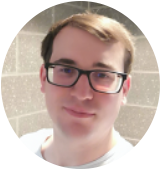 Andreas Floers (GSI, Germany), EMMI Representative
Andreas Floers (GSI, Germany), EMMI Representative
I obtained my PhD in 2020 at the Max-Planck Institute for Astrophysics in Garching, Germany working on late-phase modelling of type Ia supernovae. For my thesis, I developed a method that allows me to constrain the abundances of neutron-rich iron group elements in the supernova ejecta, which are tracers of the still unknown explosion mechanism / progenitor system. In 2021, I joined the theory group at GSI Darmstadt to work on spectral modelling of electromagnetic counterparts of gravitational wave events (kilonovae). Since then, I’ve also branched off into atomic structure calculations of lanthanides and actinides to calculate the atomic opacities required for our radiative transfer simulations.
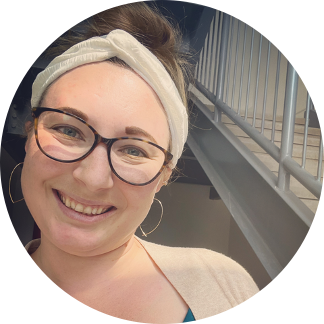 Erin Good (Michigan State University, USA), JINA-CEE Representative and Committee Chair
Erin Good (Michigan State University, USA), JINA-CEE Representative and Committee Chair
I am currently a postdoctoral researcher in the SuN (SUmming NaI) detector group at the Facility for Rare Isotope Beams. My research focuses on the measurement of beta decay properties used in calculations of neutron capture cross sections for the r- and i-processes. I got my PhD at Louisiana State University designing the Silicon Array for Branching Ratio Experiments, a silicon detector used with the Enge Split-Pole Spectrograph, and studying branching ratios important in classical novae.
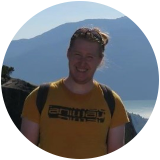 James Keegans (Keele University, UK), ChETEC Representative
James Keegans (Keele University, UK), ChETEC Representative
I am a postdoctoral researcher at Keele University. My research focusses on explosive nucleosynthesis in various environments. I completed my PhD at the University of Hull working on Type Ia supernovae, investigating the isotopic abundance distribution of SNIa as a function of progenitor mass and initial metallicity. My current work is focused on providing training resources to researchers as part of the ChETEC-INFRA project, as well as continuing with various explosive nucleosynthesis projects through international collaborations.
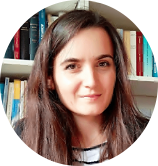 Eliana Masha (HZDR, Germany), ChETEC-INFRA Representative
Eliana Masha (HZDR, Germany), ChETEC-INFRA Representative
I got my Ph.D from the University of Milan on January 2022, working on the cross section measurement at the LUNA underground accelerator at Gran Sasso National Laboratory, Italy. Currently I have a post-doc position at HZDR, Germany. My research is mainly focused on the direct measurements of nuclear reaction at Felsenkeller facility and LUNA accelerator using both gas and solid target setup.
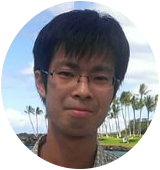 Kanji Mori (Fukoka University, Japan), UKAKUREN Representative
Kanji Mori (Fukoka University, Japan), UKAKUREN Representative
I received my Ph.D. degree at The University of Tokyo in 2021. Since then, I am working at Fukuoka University as a postdoctoral researcher. I am working on astrophysics of supernovae and stars from the theoretical side. In particular, I aim to use astrophysical objects as a powerful tool to probe exotic physics such as axions.
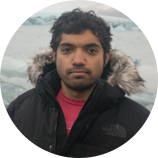 Sriteja Upadhyayula (TRIUMF, Canada), CaNPAN Representative
Sriteja Upadhyayula (TRIUMF, Canada), CaNPAN Representative
I am a postdoc with the DRAGON/TUDA group at TRIUMF. My research focuses on nuclear astrophysics -- primarily reactions that elucidate elemental synthesis in explosive environments of novae, supernovae and X-ray bursts. I am also involved with active target detector development efforts at TRIUMF. During my graduate studies at the Cyclotron Institute at Texas A&M University, my research was related to the structure of light and medium mass nuclei. In particular, structure of exotic neutron-rich and neutron-deficient isotopes, focusing on clustering phenomena in nuclei.

Robert Yates (University of Surrey, UK), BRIDGCE Representative
My research is focused on the topic of galaxy formation theory, particularly galaxy chemical evolution (GCE). I study this using both computational simulations and spectroscopic data from real galaxies.
